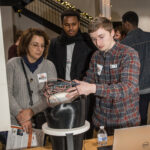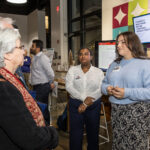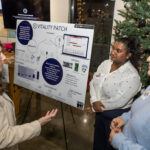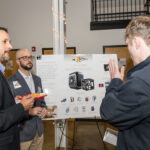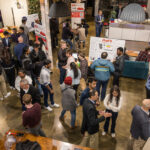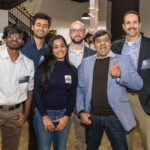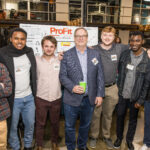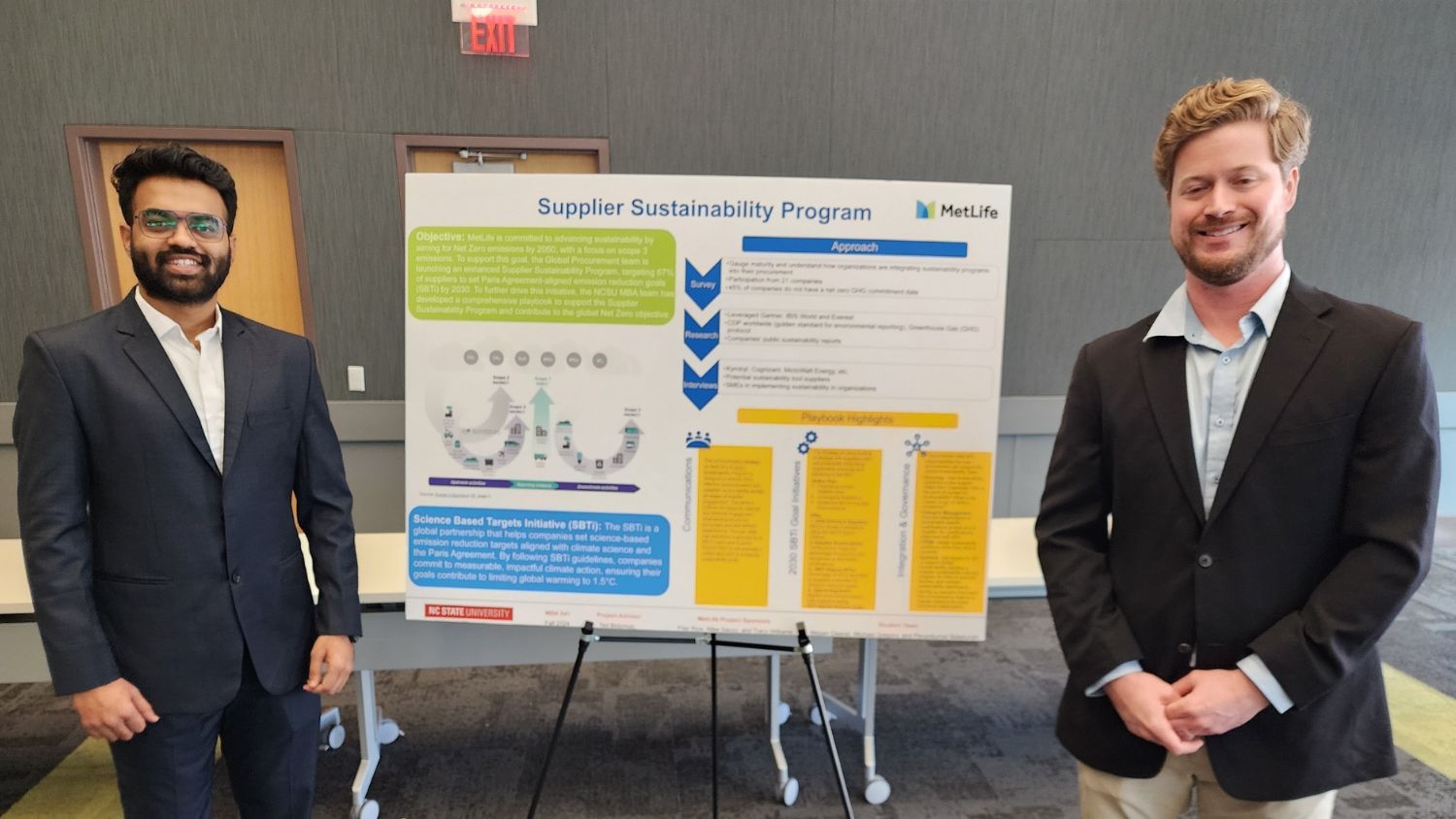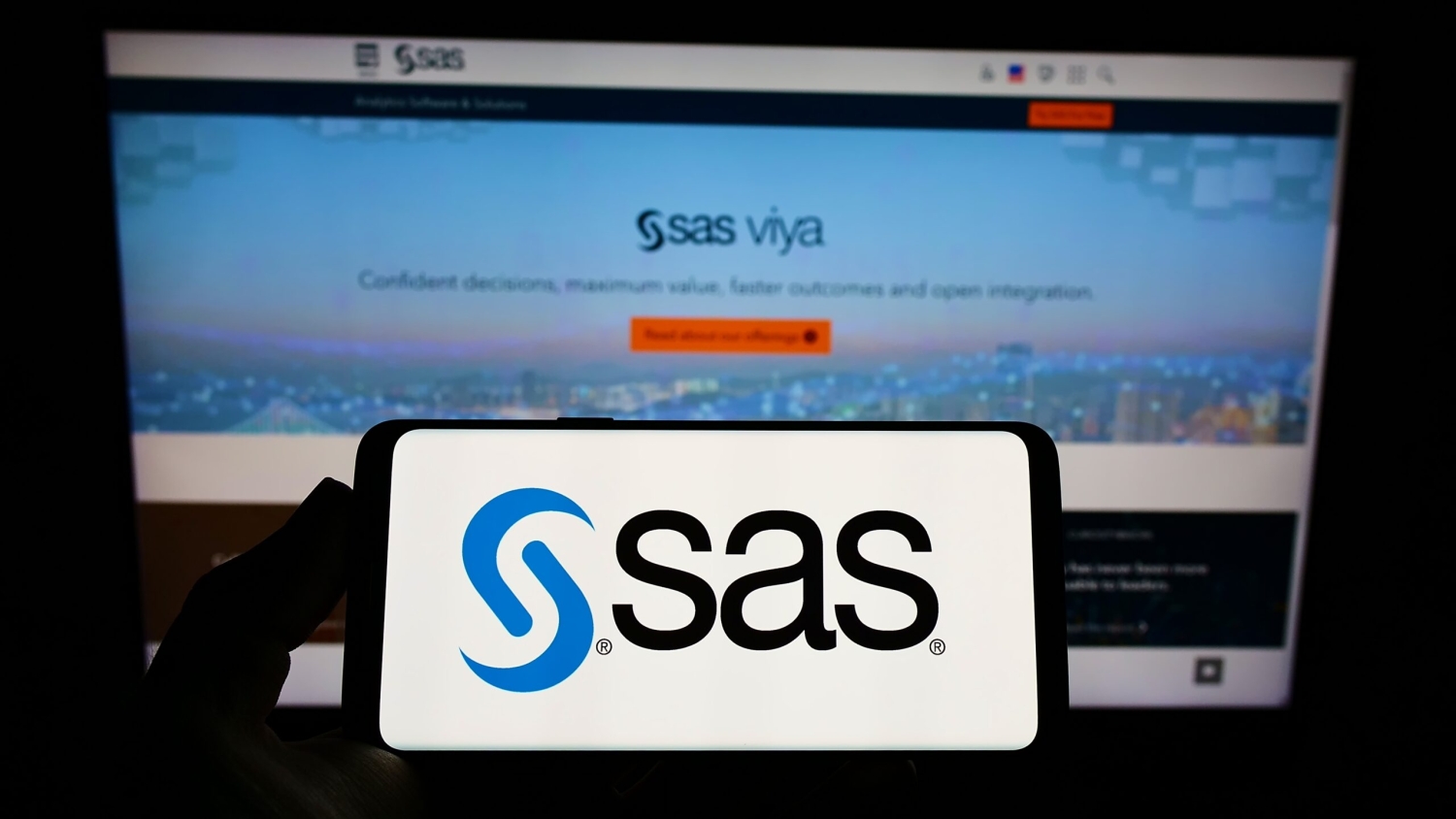Annual Product Innovation Lab Showcase Fosters Student Collaboration
NC State’s Product Innovation Lab Showcase highlights groundbreaking student innovations, from wearable healthcare tech to AI-powered grant tools, bridging engineering and business for real-world impact.
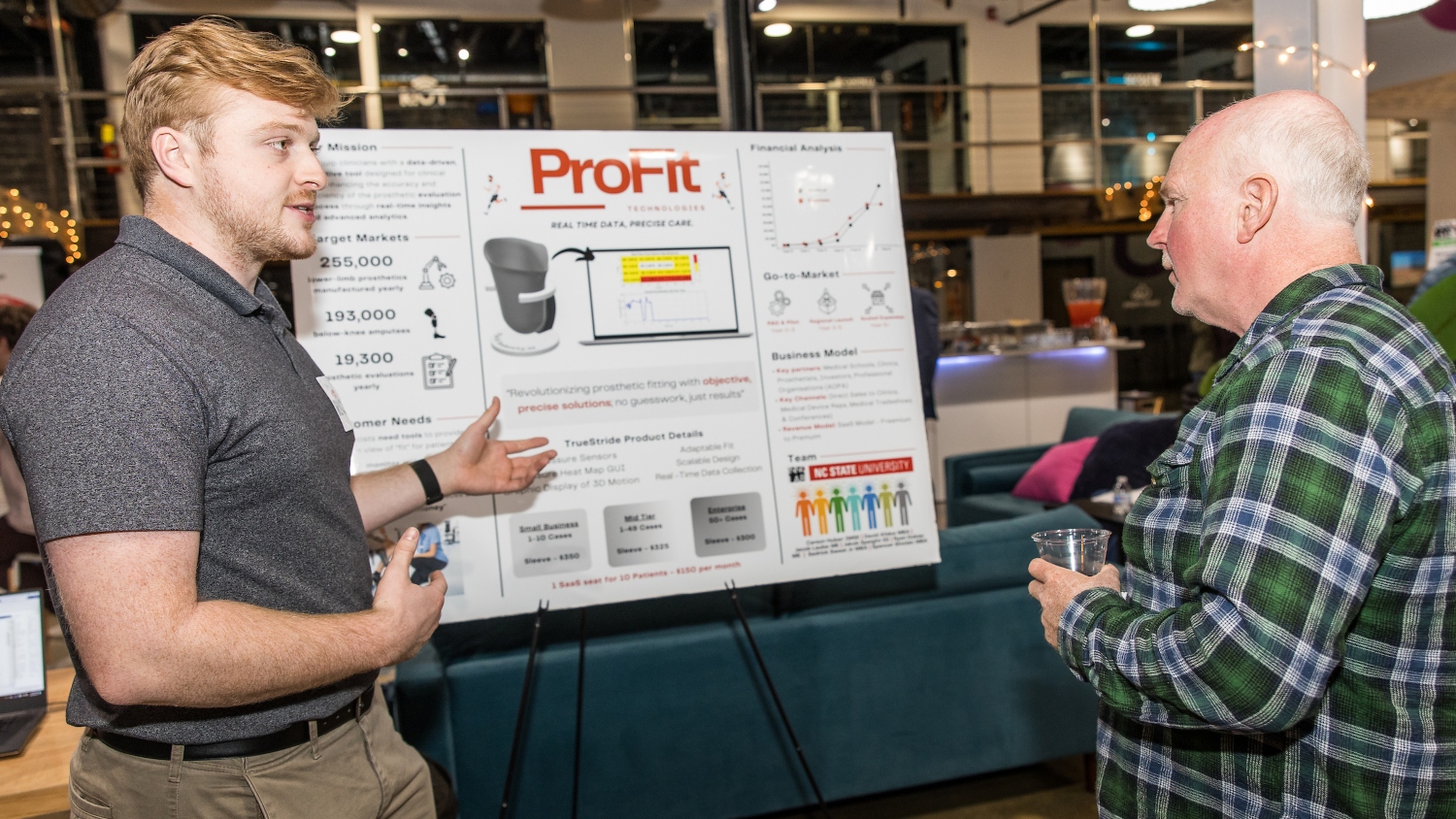
On Friday, Dec. 6, graduate students, faculty and members of the Triangle’s innovation and start-up community gathered in downtown Raleigh for NC State’s annual Product Innovation Lab Showcase.
The award-winning MBA 555 Product Design and Development course, also known as the Product Innovation Lab, is a collaborative experience that brings together graduate students from both management (MBA) and engineering disciplines. Over the course of the fall semester, students learn from NC State faculty members in Poole College of Management and College of Engineering about the entire product development process, from identifying market needs to creating viable business solutions.
With the support of faculty mentors, students engage in hands-on innovation, conducting market research, designing and developing working prototypes of their products – giving them valuable real-world experience that can make a significant impact across industries.
“The course bridges the gap between engineering and business,” says Dr. John Muth, distinguished professor of electrical and computer engineering and one of the course instructors. “It helps students learn how to speak both languages, turning ideas into prototypes, analyzing them from a business perspective, and turning those ideas into full-fledged business plans.”
Dr. Jonathan Bohlmann, fellow course instructor and professor of marketing and innovation at Poole College of Management, sees the course as a perfect fit for the “Think & Do” spirit of NC State. “It is 100% project-oriented, so teams are able to manage their research, ideate and plan their business approach, and craft innovative solutions that they feel will resonate with their intended customer markets. And, because it’s interdisciplinary with both management and engineering talent, it’s a great opportunity for students to get out of their comfort zone and explore new ideas.”
The semester concludes with an annual showcase in cooperation with RIoT, an Internet of Things (IoT) community hub. During the event, students have the opportunity to network with professionals from the startup community and pitch their products to a crowd of “investors.” This year’s showcase featured seven student products, with concepts ranging from wearable healthcare monitoring devices to a unique food truck cooperative concept.
“The end-of-semester showcase is certainly a way to celebrate the work of the student teams, but a key aspect is that innovators and entrepreneurs from the local business community come out to see those new ideas,” says Bohlmann. “It gives the students a real-world perspective and the ability to network with some very successful people.”
ProFit Technologies – Real-Time Data, Precise Care
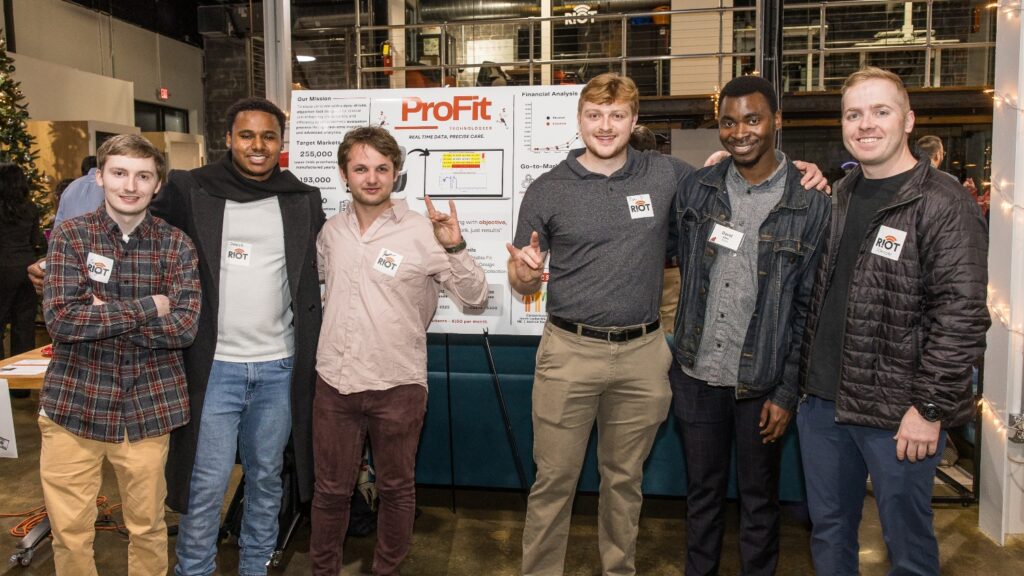
The judges’ favorite project was the ProFit Lower-Limb Sleeve from the ProFit Technologies team, which included Jakob Speight, electrical and computer engineering (ECE); Ryan Dukes and Jacob Laube, mechanical engineering (ME); Carson Huber, integrated manufacturing systems engineering (IMSE); and Jenkins MBA students David Afeke, Spencer Sinclair and Sedrick Sweat.
ProFit Lower-Limb Sleeve is a pressure-mapping tool that provides prosthetists with real-time, objective data during the prosthetic evaluation process. By offering precise pressure distribution insights, the Lower-Limb Sleeve enhances clinical decision-making and streamlines the evaluation process for a better-fitting prosthetic.
“When developing our product, our goal was to create a sensor that could accurately detect where the forces are during the fitting process,” says Dukes. “For amputees who can’t feel sensations, this product gives them an objective tool to ensure the prosthetic fits as well as possible.”
AERO SILENCE – Quietly Redefining Kitchen Luxury
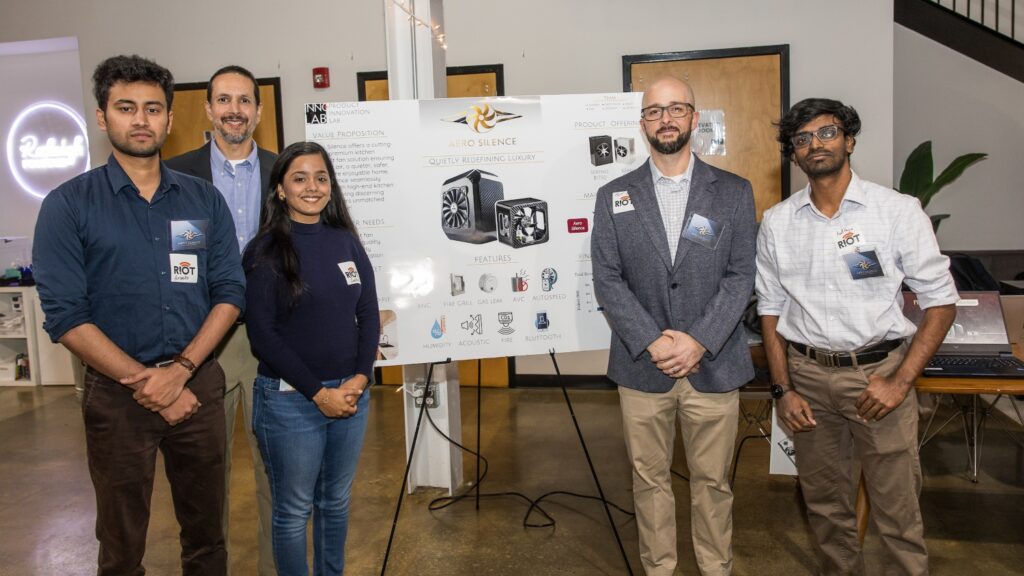
AERO SILENCE, created by Swara Shah (ECE), Akshay Chaudhary (ME), Aadithya Natraj, industrial and systems engineering (ISE), and Jenkins MBA students Matt Davis, Jayant Moghe and Raj Varma, was the audience favorite – earning $4.9 million in mock investor dollars.
According to Moghe and Varma, the inspiration behind Aero Silence – an innovative kitchen exhaust fan designed to enhance air quality and create a safer, healthier and more pleasant home environment – was driven by a desire to create a product that would positively impact people’s lives and make a meaningful difference.
“We started by looking at the data center cooling and residential HVAC markets, speaking with stakeholders at major companies in tech and HVAC fields, and conducting field research,” says Davis. “We found that people wanted more control over the noise in their own homes, and immediately got a positive response from homeowners, construction companies and realtors when we discussed the idea of ‘a quiet, high-efficiency kitchen vent fan’ that would add value and comfort. The idea almost became a no-brainer!”
VITALITY PATCH – A Beat Ahead

A second audience favorite was Vitality Patch, a wearable atrial fibrillation (AFib) monitor, developed by Nimi Vasipalli (biology), Alana Howell (biomedical engineering), Atharva Thorat (ECE), and Jenkins MBA students Muhammad Huzaifa, Jenna Natale and Arjun Pokhrel.
Vitality Patch provides AFib monitoring for older adults with an increased risk of heart complications and allows for effortless health tracking, real-time insights and timely alerts. With a user-friendly design and data-sharing option, the product offers reassurance and better health outcomes for patients and their support networks.
AGROVISION – Grow Smarter. Grow Stronger.
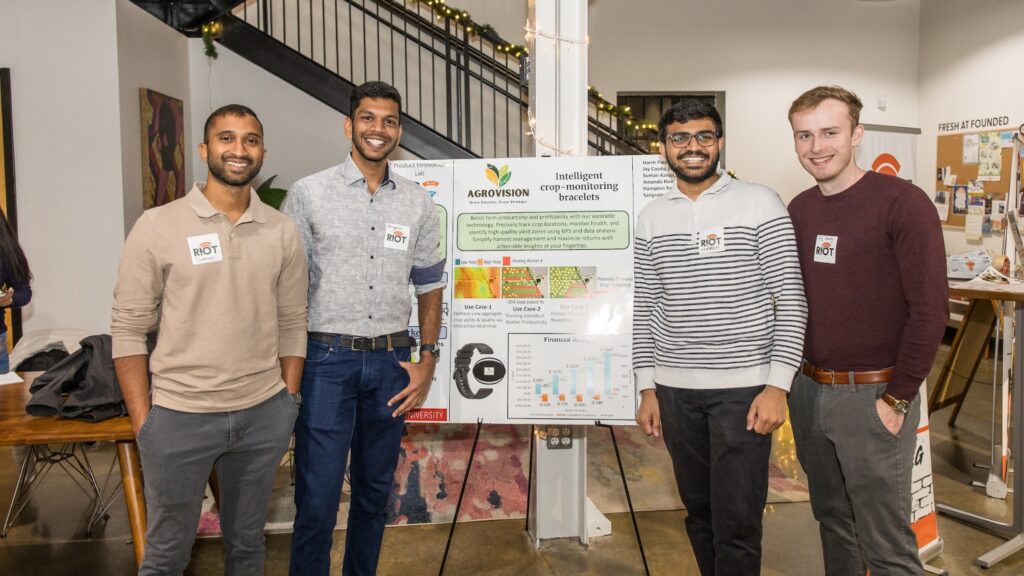
To support farmers in transforming the productivity and profit levels of their land, students Amanda Rice (microbiology), Jay Coady (ECE), Sangram Vikram Jadhav (ISE) and Suman Kasoji, Harsh Patel and Hampton Smith (Jenkins MBA), developed AGROVISION intelligent bracelets for crop monitoring.
The wearable bracelet device – which uses cutting-edge GPS tracking, motion sensors and heat map data analysis – makes identifying the precise location of high-quality crops per field easier than ever.
HarvestTrack – Real Yield Data. Real Results.
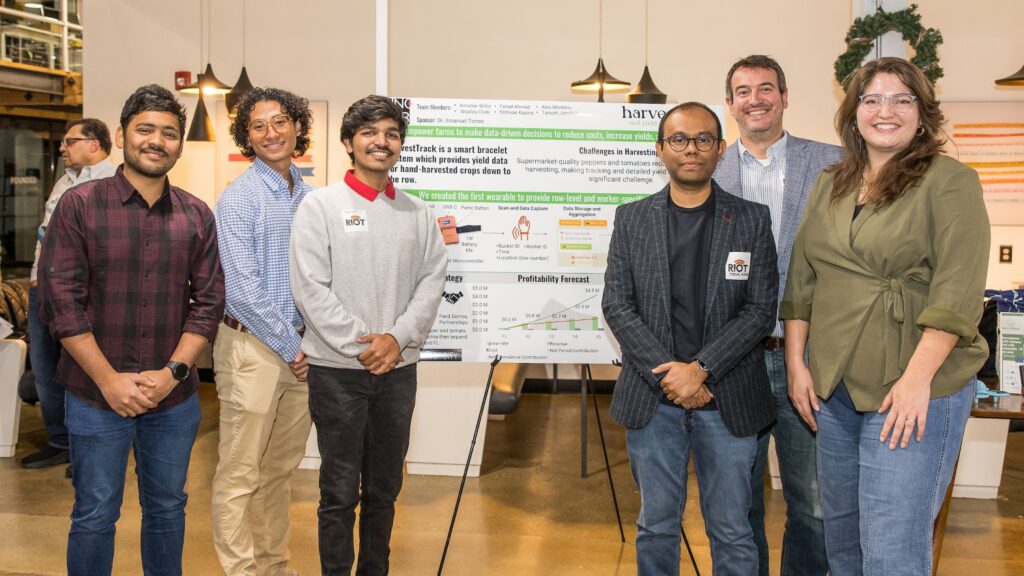
Another product focused on supporting crops is HarvestTrack, an innovative wearable technology that allows growers of hand-harvested crops to track yield data and create yield maps.
Created by Faisal Ahmed (Fiber/Poly Sci), Tanush Jamdade (IMSE), Alex Ivan Montero Samaniego (ISE) and Jenkins MBA students Bradley Cook, Srinivas Kasina and Annalee Witte, the device provides growers with data that will allow them to practice precision agriculture and improve their ROI, while retrofitting to their current harvest system.
Proposal Pros – Empowering Grant Success with AI
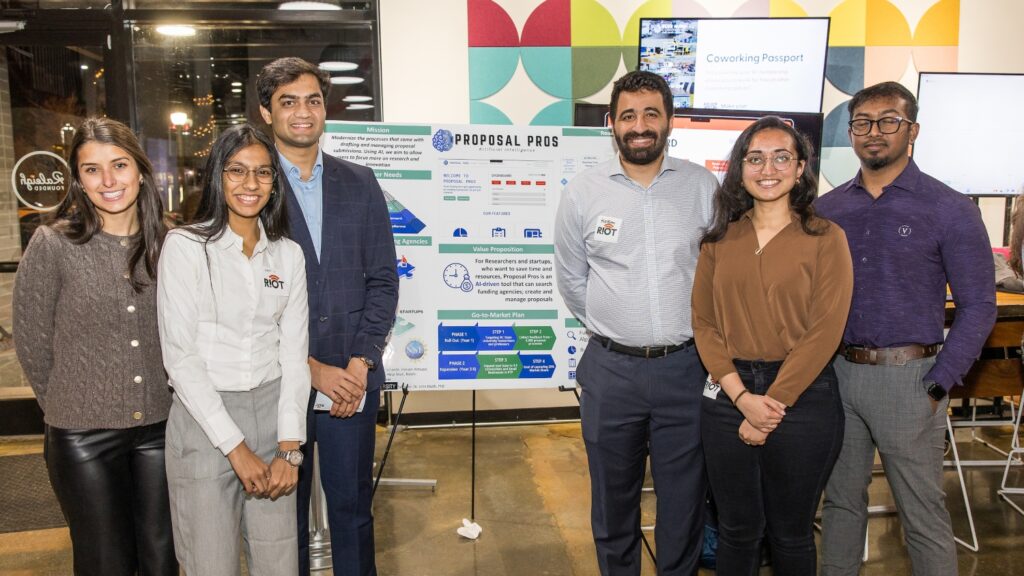
Proposal Pros is an AI-powered tool transforming the grant application process. The innovative technology simplifies complex tasks – enabling users to generate accurate budgets, ensure compliance and discover tailored funding opportunities in one seamless platform.
Developed by, Sumanth Jayam (ECE), engineering management (MEM) students Hassan Almuzel, Riddhi Gawande, Aaradhya Avinash Gole and Hiral Shah, and Jenkins MBA students Christian Schaede and Anya Yencho, Proposal Pros is designed for researchers and entrepreneurs to boost productivity and efficiency, helping users secure grants faster while minimizing administrative overhead.
STREET FOOD COOPERATIVE – Shared Space, Big Taste
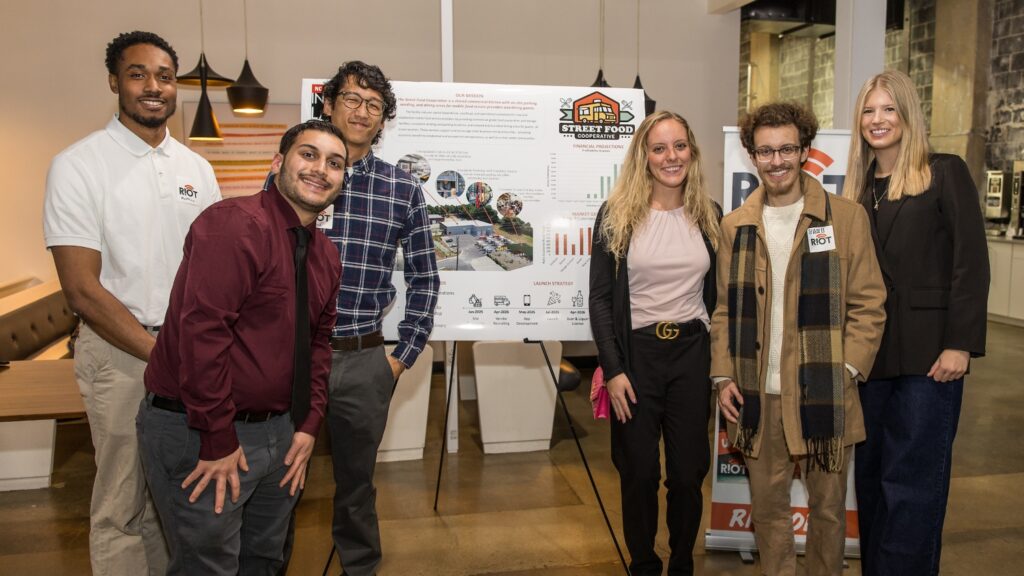
To meet the growing demands of Raleigh food truck owners and operators, Jenkins MBA students Margaret Goodman, Logan Hallas and Jake Mueller – along with Ali Hamed (biomedical engineering), Matthew Hunter (ECE) and Rene Moore (industrial design) – developed STREET FOOD COOPERATIVE.
The shared commercial kitchen, which offers permanent vending spaces and a covered dining area, aims to simplify operations for street food vendors while lowering their opening and running costs. Beyond supporting food vendors, the team also believes that the cooperative will give customers a diverse, consistent dining experience in one central location – allowing them to support local entrepreneurs and enjoy unique flavors.
